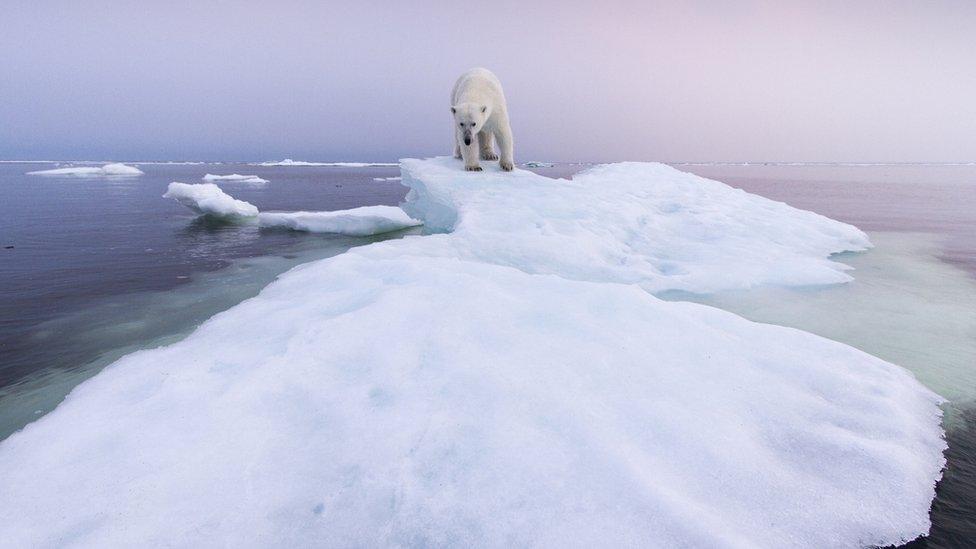Climate change: 'Urgent' action needed to meet climate targets says UN
- Published
- comments

The world needs 'urgent climate action' to limit carbon emissions and keep temperatures to below 1.5C, as agreed under the Paris Agreement.
That's according to a new United Nations (UN) report which details the scale of the climate crisis in 2020.
The study says that by 2030, the world would need to cut the combined emissions of the top six carbon-producing countries to have a reasonable chance of staying below the 1.5C.
The report highlights key climate change issues:
2016-2020 likely to be the hottest five year period on record
Arctic sea ice is shrinking
Global sea levels are rising quickly
Greenhouse gases are at their highest level in three million years
It also says that "irreversible" climate change impacts, like the melting of glaciers, are increasing.
Global sea levels are rising much faster than previously recorded. Between 2016 and 2020 the rate of increase was 4.8mm per year, an increase over the 4.1mm recorded between 2011 and 2015.
The extent of sea-ice in the Arctic has continued to decline, at a rate of 13% per decade.
Rising temperatures have also seen droughts and heatwaves and have increased the risk of wildfires.
Climate change is leading to an increase in forest fires, extreme weather and rising sea levels
The impact of coronavirus
The study shows that global lockdowns due to coronavirus did have a big impact on the amount of greenhouse gases released into the atmosphere with daily levels in April 2020 falling by 17% compared with 2019.
That's because millions of people were not travelling as much so there was much less traffic.
But it hasn't lasted, as lockdowns eased and people began to travel to work again emissions rose, and by June were within 5% of the previous year.
Climate Anxiety: Five tips to deal with your worries about climate change
To keep the world from going beyond 1.5C of warming before 2100, greenhouse gas production needs to be urgently cut.
Part of the problem is that CO2 can last for hundreds of years in the atmosphere so adding even a reduced amount to the air increases the warming potential of all the gas that has built up over the years.
"Never before has it been so clear that we need long-term, inclusive, clean transitions to tackle the climate crisis and achieve sustainable development," said UN Secretary General, Antonio Guterres.
- Published3 March 2020
- Published9 July 2020
- Published23 September 2019
